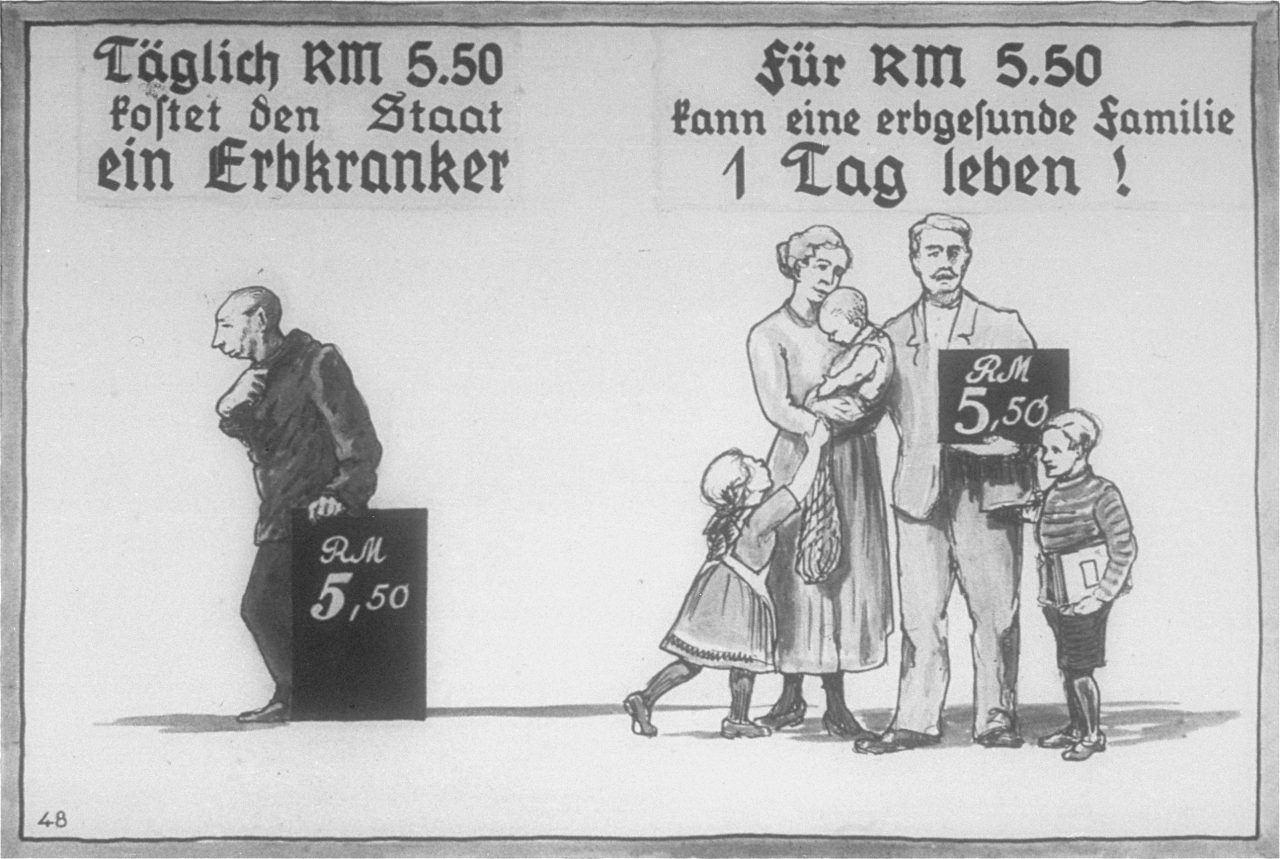3 December: International Day of Persons with Disabilities
The International Day of Disabled Persons, established by the United Nations, aims to promote the rights and wellbeing of persons with disabilities.
Every year on 3 December, the International Day of Persons with Disabilities raises awareness of the issues facing disabled people and to draw attention to the positive contributions persons with disabilities make to society.
Under the Nazi regime in Germany from 1933 to 1945, people with disabilities were targeted by discriminatory policies including exclusion, sterilisation and, from 1939 onwards, forced euthanasia. The Nazis targeted anyone perceived to be mentally or physically disabled for euthanasia in what became known at the T4 programme.
Between 1933 and 1939, an estimated 360,000 people were subjected to forced sterilisation. From 1939 until 1945, it is estimated that close to 250,000 people with disabilities, or perceived to have disabilities, were murdered by the Nazi regime.


